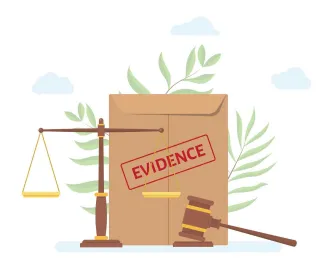On this episode of The Bracewell Sidebar, hosts Matthew Nielsen and Seth DuCharme are joined by Sid Kamaraju to discuss litigating classified information and some of the nuances of the classification process.
Prior to joining private practice, Sid was a federal prosecutor in Manhattan at the U.S. Attorney's Office at the Southern District of New York. He spent most of his time there doing national security work, which ranged from domestic terrorist attacks to foreign terrors of investigations, sanctions investigations, cyber hacking, espionage, and a whole gamut of things.
Let’s talk about what are the categories of classification of information? What do you need to do to get clearance at various levels to be able to review that information?
So, the classification system in the United States is a tiered one. And as you can imagine, the more sensitive information the higher classification it gets. The lowest level of classification is what's known as confidential, and then it proceeds from there to secret, top secret, and then there's another layer on top of that that's commonly referred to as SCI, or Sensitive Compartmented Information. Basically all U.S. classification decisions are made on what's known as a need-to-know basis. That's written into the law where a person is not entitled to receive any form of classified information unless they have a true legitimate need to know it for purposes of national security. So, in order to gain access to any type of classified information, you have to get a security clearance, and we can talk a little bit about the painful process that it is to get a security clearance, but the first step is demonstrating that you need access to the information.
When you talk about need to know in the litigation context, who are the stakeholders and how can you litigate responsibly within the balance of the Constitution and also protect national security equities for people who aren't really in the litigation business from their point of view?
When you are engaged in criminal prosecution there are Constitutional protections that a defendant receives that trump any executive order or any statute. But at the same time, there's a real tricky problem that if you don't create some mechanism by which you can balance those Constitutional rights, and we'll talk about those in a second, versus the need to protect national security, truly serious crimes may go unpunished and undeterred as a result. So, when we talk about the constitutional protections that apply, it could actually hit at different stages. For example, the Fourth Amendment may be implicated, and you see that in the criminal process. When the government conducts a search, whether it's pursuant to a search warrant, or whether they're obtaining in the classified setting additional sort of investigative methods, the Fourth Amendment governs the reasonableness and appropriateness of that search. And often in the national security space in particular, the lines get blended between law enforcement and intelligence agencies with respect to how the government may come across a certain amount of information.
Now let's talk a little bit about what are the levels of clearance and what does it take to get those? And are there any shortcuts with any of the various levels of classification that can help shortcut some of this, like a non-disclosure agreement for instance?
So, some people view federal prosecutors as having access to all the classified information in the world. It's actually when you start out as a prosecutor you have access to no classified information. And if you walked in and asked for it, they would laugh at you. What you have to do, whether you're a prosecutor, whether you're a defense lawyer, whether you're a law clerk to a judge, they're not a judge by the way, but whether you're a law clerk to a judge you have to submit for a security clearance process, which is a pretty thorough background check and it's typically conducted in the first instance by the FBI. They're looking for anything in your background that could suggest that you could be, for example, compromised in such a way that you'll one day be sort of threatened or cajoled or otherwise enticed into disclosing classified information. And the level of background check that you receive sort of escalates in relation to the sensitivity of the information you're trying to get.
How do you work your way through the many exciting steps of a Classified Information Procedures Act (CIPA) adventure?
So CIPA is basically a codification of a set of rules and procedures that tells litigants and the court how to handle classified information. And you can see this, and I think to your point, Seth, you can read it on the page that it is a cradled-to-grave kind of explanation for how to handle classified information but as with everything, the devil is in the details. What CIPA was designed to do and what Congress intended to do when it passed it was to address, one, the balancing act that Seth was talking about between a defendant's constitutional rights and criminal prosecution. And in particular, also to address a problem known as graymail, which is a term that's used to refer to when a potential or actual criminal defendant essentially threaten the disclosure of classified information or to seek to disclose classified information in order to deter a criminal charge.




 />i
/>i
